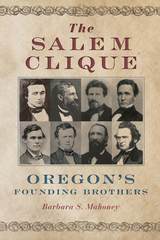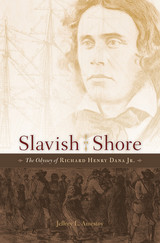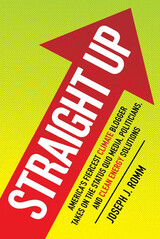5 start with S start with S

While not in agreement with some of the more extreme contemporary accusations against the Clique, many historians have concluded that its members were vicious men who were able, because of their command of the Democratic party, to impose their hegemony on the Oregon Territory’s inhabitants. Other scholars have seen them as merely another instance of the contentious politics of the period.
Although the Salem Clique has been given considerable prominence in nearly every account of Oregon’s Territorial period, there has not been a detailed study of its role until now. What sort of people were these men? What was their impact on the issues, events, and movements of the period? What role did they play in the years after Oregon became a state? In The Salem Clique, Historian Barbara Mahoney sets out to answer these and many other questions in this comprehensive and deeply researched history.

In 1834 Harvard dropout Richard Henry Dana Jr. sailed to California as a common seaman. His account of the voyage, Two Years Before the Mast, quickly became an American classic. But literary acclaim could not erase the young lawyer’s memory of the brutal floggings he had witnessed aboard ship or undermine the vow he had made to combat injustice. In Slavish Shore, Jeffrey Amestoy tells the story of Dana’s unflagging determination to keep that vow in the face of nineteenth-century America’s most exclusive establishment: the Boston society in which he had been born and bred.
The drama of Dana’s life arises from the unresolved tension between the Brahmin he was expected to be on shore and the man he had become at sea. Dana’s sense of justice made him a lawyer who championed sailors and slaves, and his extraordinary advocacy put him at the center of some of the most consequential cases in American history: defending fugitive slave Anthony Burns, justifying President Lincoln’s war powers before the Supreme Court, and prosecuting Confederate president Jefferson Davis for treason. Yet Dana’s own promising political career remained unfulfilled as he struggled to reconcile his rigorous conscience with his restless spirit in public controversy and private life.
The first full-length biography of Dana in more than half a century, Slavish Shore reintroduces readers to one of America’s most zealous defenders of freedom and human dignity.

Sell spent much of his diplomatic career in Eastern Europe and Russia, including eight years in Yugoslavia between 1974 and 2000, and witnessed the events that contributed to the dissolution and ultimate destruction of Yugoslavia. In Slobodan Milosevic and the Destruction of Yugoslavia he provides first-hand observations of Milosevic from the heady days of his rise to power and, later, in the endgame of the Bosnian war, including the Dayton Peace Conference. Drawing on a wide range of published material as well as interviews with Yugoslav and foreign participants, Sell covers such areas as Milosevic’s relationship to the military, his responsibility for war crimes, his methods of persuasion and negotiation, and his notoriously explosive personality.

During the Cold War, the political leadership of the Soviet Union avidly sought intelligence about its main adversary, the United States. Although effective on an operational level, Soviet leaders and their intelligence chiefs fell short when it came to analyzing intelligence. Soviet leaders were often not receptive to intelligence that conflicted with their existing beliefs, and analysts were reluctant to put forward assessments that challenged ideological orthodoxy.
There were, however, important changes over time. Ultimately the views of an enlightened Soviet leader, Gorbachev, trumped the ideological blinders of his predecessors and the intelligence service’s dedication to an endless duel with their ideologically spawned “main adversary," making it possible to end the Cold War.
Raymond Garthoff draws on over five decades of personal contact with Soviet diplomats, intelligence officers, military leaders, and scholars during his remarkable career as an analyst, senior diplomat, and historian. He also builds on previous scholarship and examines documents from Soviet and Western archives. Soviet Leaders and Intelligence offers an informed and highly readable assessment of how the Soviets understood—and misunderstood—the intentions and objectives of their Cold War adversary.

Straight Up draws on Romm’s most important posts to explain the dangers of and solutions to climate change that you won’t find in newspapers, in journals, or on T.V. Compared to coverage of Jay-Z or the latest philandering politician, climate change makes up a pathetically small share of news reports. And when journalists do try to tackle this complex issue, they often lack the background to tell the full story. Despite the dearth of reporting, polls show that two in five Americans think the press is actually exaggerating the threat of climate change. That gives Big Oil, and others with a vested interest in the status quo, a huge opportunity to mislead the public.
Romm cuts through the misinformation and presents the truth about humanity’s most dire threat. His analysis is based on sophisticated knowledge of renewable technologies, climate impacts, and government policy, written in a style everyone can understand. Romm shows how a 20 percent reduction in global emissions over the next quarter century could improve the economy; how we can replace most coal and with what technologies; why Sarah Palin wears a polar bear pin; and why controversial, emerging technologies like biochar have to be part of the solution.
The ultimate solution, Romm argues, is bigger than any individual technology: it’s citizen action. Without public pressure, Washington and industry don’t budge. With it, our grandkids might just have a habitable place to live.
“The Web’s most influential climate-change blogger” and “Hero of the Environment 2009”
—Time Magazine
“I trust Joe Romm on climate.”
—Paul Krugman, New York Times
“America’s fiercest climate-change activist-blogger” and one of “The 100 People Who Are Changing America”
— Rolling Stone
“One of the most influential energy and environmental policy makers in the Obama era”
— U.S. News & World Report
“The indispensable blog”
—Thomas Friedman, New York Times
“One of the most influential energy and environmental policy makers in the Obama era”
— U.S. News & World Report
“The indispensable blog”
—Thomas Friedman, New York Times
READERS
Browse our collection.
PUBLISHERS
See BiblioVault's publisher services.
STUDENT SERVICES
Files for college accessibility offices.
UChicago Accessibility Resources
home | accessibility | search | about | contact us
BiblioVault ® 2001 - 2024
The University of Chicago Press









